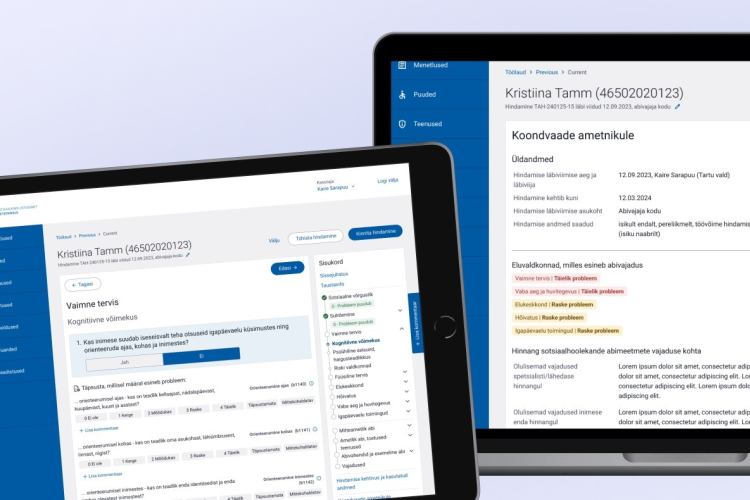5 Reasons why to choose Node.js
In today's world, web-based information systems are a critical cornerstone for many businesses. Beyond supporting sales, marketing, and administration, well-designed information systems deliver immense value to both internal and external users. Through our work with numerous private and public sector organizations, when evaluating various frameworks, we have consistently found Node.js to be the optimal solution.
Node.js, based on JavaScript, has rightfully become the most popular framework for web applications as of 2024. In this article, we highlight five key reasons why Node.js is an excellent choice for developing information systems.
Curious to learn how Node.js and other technologies can help achieve your business goals? Visit our software development page for more insights.
1. Speed, Speed, Speed
To stay competitive, applications must be fast. In the context of information systems, speed means the ability to utilize existing hardware efficiently and to provide developers with a seamless process for implementing updates.
Node.js is powered by Google’s highly capable JavaScript V8 engine, originally designed to serve the widely familiar Google Chrome browser. Today, Chromium forms the backbone of other browsers like Microsoft Edge, Samsung Internet, and Opera, collectively serving about 75% of global browser usage.
JavaScript engines employ Just-In-Time (JIT) compilation, enabling code to be compiled within milliseconds and executed immediately. Unlike traditional programming languages such as Java, which compile all code at application startup, Node.js eliminates long wait times of 5–6 minutes when implementing development changes. Users receive precisely what they need—no more, no less.
Node.js is built for multitasking. People generally dislike waiting in queues – neither do users, waiting on back-end requests in information systems. Node.js's asynchronous design allows it to handle multiples of such requests simultaneously, meaning information can flow without having to wait for the previous ones to finish. As an example, imagine traditional checkout lines versus modern self-service systems—Node.js delivers a faster, more efficient user experience.
2. Scalability for Business Growth
With JavaScript and Node.js, solutions can be deployed across any platform — from web applications to smart refrigerators and cars. The robust V8 engine supports various architectural approaches, making it a versatile tool for developers.
Node.js applications can be easily containerized, virtualized, and versioned. This creates "packages" that can be independently managed and moved between systems, significantly speeding up and streamlining the development process. Tools like Docker enable vertical and horizontal scaling based on demand and load.
Information systems face varying workloads at different times. For instance, sales activities peak during the holiday season, and resource-intensive processes may regularly occur at the end of the month. Scalability ensures preparedness for these fluctuations. In the case of avarii.lkf.ee, a Node.js-based application, scalability is vital to handling sudden spikes in user activity.
3. A Future-Proof Choice
Both JavaScript and its popular frameworks, including Node.js, are open source. This means the code is accessible for review, providing transparency about design decisions, functionality, and more. Open-source frameworks are invaluable for ensuring security, as experienced developers worldwide can conduct audits and contribute improvements. This enhances the framework's capabilities and strengthens its security measures.
The open-source model allows users to actively influence development directions, ensuring outcomes align with best practices. This provides confidence that today's choice of framework will also remain reliable in the future. Examples of successful open-source solutions include Blender for 3D modelling, GitLab Community Edition for code repositories, OBS Studio for streaming, and Drupal for content management.
JavaScript remains the most popular programming language, with Node.js as its leading framework. Its widespread adoption ensures a robust talent pool, making it easier to find developers for ongoing development and maintenance.
4. Security for All
Node.js's open-source nature allows developers to audit and address security risks proactively. Widely used across diverse information systems, the framework benefits from a shared commitment to ensuring its resilience against vulnerabilities.
Cybersecurity and cryptography are foundational to both information systems and Node.js. The framework supports extensive encryption methods and multi-layered security measures to protect even the most sensitive data. For instance, we have utilized Node.js's capabilities to securely process medical data involving thousands of users.
Another layer of security is provided through strict typing, enabled by TypeScript, an open-source extension for JavaScript created by Microsoft. TypeScript identifies errors and weaknesses during development, improving the overall code quality.
5. Proven Reliability
The reliability of Node.js is evident in both developer preferences and its adoption by major corporations. Companies like Amazon, Netflix, eBay, Reddit, LinkedIn, PayPal, Spotify, BBC, SoundCloud, NASA and many others use Node.js extensively. At Trinidad Wiseman, we have implemented Node.js in projects such as:
- Haldusnet.ee: Software for managing everyday tasks in apartment associations
- Avarii.lkf.ee: A system for reporting traffic accidents
- Portal.skidsolutions.eu: An e-self-service platform
As the most popular framework today, Node.js is here to stay. It is a robust, fast, scalable, and secure platform trusted by thousands of companies worldwide. Node.js is well-suited to solving diverse business challenges, limited only by imagination and the laws of physics. If Node.js seems like the right fit for your company's development plans, feel free to contact us.








